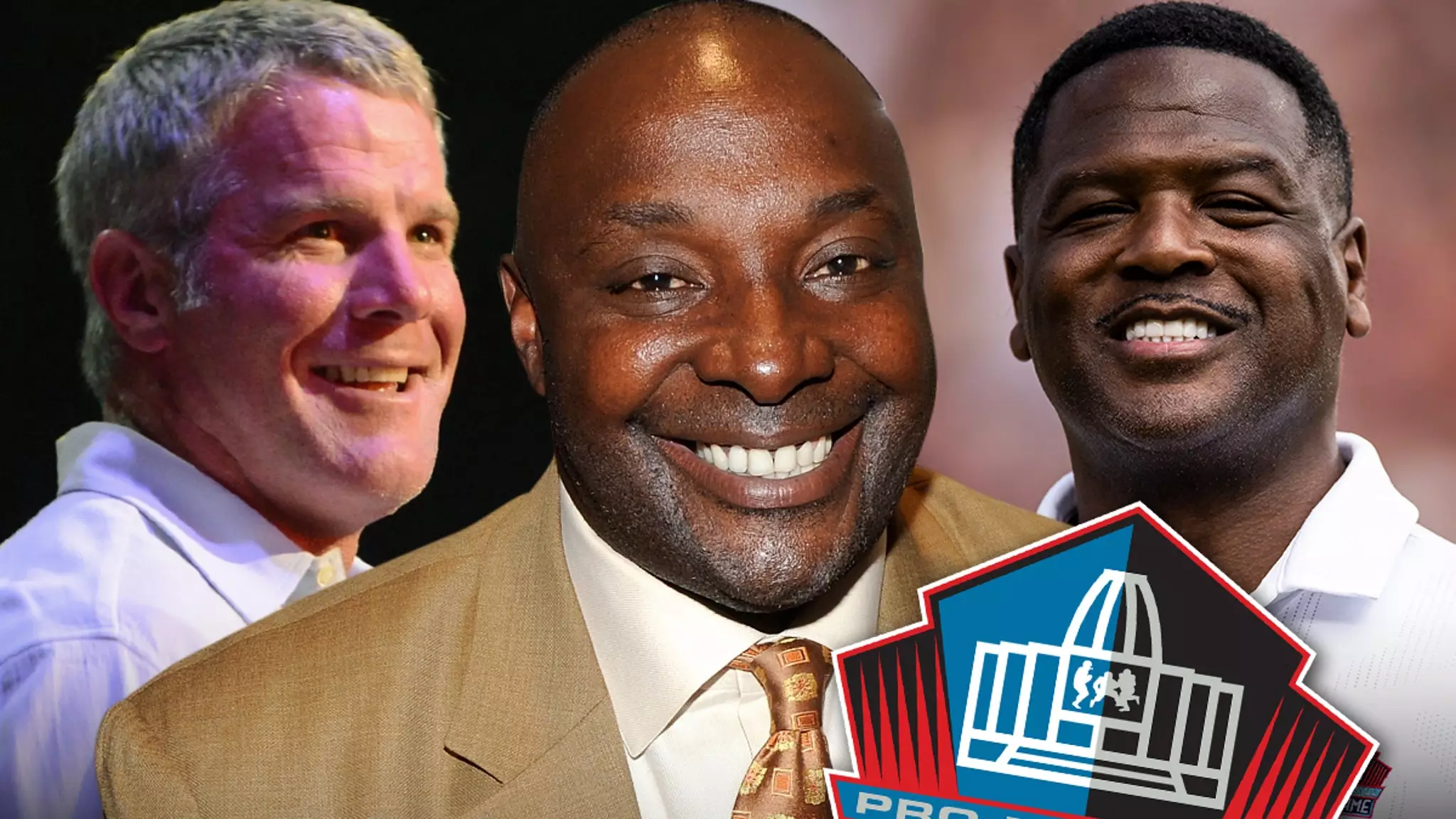Sterling Sharpe remains a pivotal figure in the lore of Green Bay Packers football. Despite a career that spanned just seven seasons, his contributions to the game were remarkable. Recently, two of Sharpe’s contemporaries, Brett Favre and LeRoy Butler, voiced their unwavering belief that Sharpe deserves a place in the Pro Football Hall of Fame. Their fervent endorsements spotlight not only Sharpe’s statistical prowess but also his unique role as a game-changer for the Packers during the 1990s.
In football, numbers often tell a powerful story, and Sharpe’s statistics are nothing short of impressive. Over the course of 112 games, he amassed an astonishing 595 receptions, translating to 8,134 receiving yards and 65 touchdowns. These achievements speak volumes about Sharpe’s abilities; however, they only scratch the surface. The brevity of his career—cut short by injuries—adds layers to the narrative, suggesting that had he played longer, his records might have eclipsed those of many current Hall of Famers. As Butler poignantly stated, had Sharpe remained injury-free, he would have undoubtedly been in contention for the title of “Greatest of All Time.”
Brett Favre, legendary quarterback and Sharpe’s teammate, highlighted another crucial aspect of Sharpe’s game: his intelligence. Favre lauded Sharpe not just for his athletic ability but for his football acumen, describing him as “the smartest football player” he had ever played with. This assertion requires deeper consideration. Athletic prowess is vital in sports, yet the ability to read defenses and anticipate plays often distinguishes great players from legends. Sharpe’s intellect allowed him to excel even when physical attributes like speed and size were not in his favor, thereby redefining what it means to be a wide receiver.
As Sharpe stands as one of five finalists for induction into the Hall of Fame this year, the competition remains fierce. Ironically, former coach Mike Holmgren is also among the nominees, bringing an added layer of complexity to the selection process. The prospect of both figures being inducted together reflects not only the shared history but also the potential for collective recognition of their contributions to the game. Favre’s remark about the excitement of celebrating alongside fellow legends captures the emotional weight of this endeavor—the Hall of Fame isn’t merely a physical space; it symbolizes the ultimate acknowledgment of a player’s impact on the sport.
Anticipation builds as the Hall of Fame class of 2025 will be unveiled during Super Bowl week in February. With the stakes so high, the football community is keenly aware of the implications of this announcement. For Sterling Sharpe, the journey to this moment has been long and arduous, laden with arguments for his legacy and a career that, while short, was undeniably influential. As supporters rally behind Sharpe, the hope remains that the committee recognizes not only the statistics but also the profound impact he had on the game, ensuring that his remarkable story gets the ending it so richly deserves.

